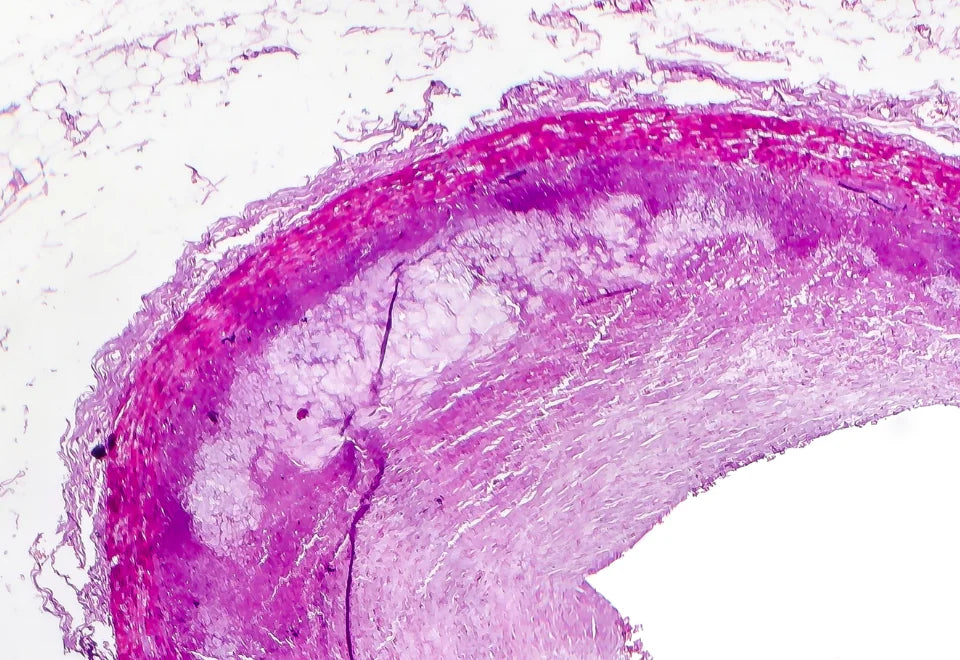The gut microbiome plays a critical role in sleep by producing key metabolites like butyrate (supports non-REM sleep) and serotonin (90% produced in the gut), which influence sleep quality and duration. Poor gut health can disrupt sleep, while beneficial bacteria like Bifidobacteria and Lachnospiraceae are linked to better rest. On the other hand, harmful bacteria like Selenomonadales may worsen insomnia. Improving gut health through probiotics, prebiotic fiber, and dietary changes (e.g., tryptophan-rich foods) can enhance sleep patterns.
Maintaining regular sleep and meal schedules can further optimize gut health and improve sleep quality.
Sleep-Regulating Metabolites from Gut Bacteria
Gut bacteria play a key role in sleep by producing metabolites that influence both the brain and the body.
How Butyrate Impacts Sleep and Brain Activity
Butyrate, a short-chain fatty acid made by gut bacteria, has been shown to support non-rapid-eye movement sleep (NREMS). Researchers discovered that injecting butyrate directly into the portal vein resulted in a 70% increase in NREMS. This was also linked to a drop in body temperature of 0.4–1.2°C during the first six hours after the injection [1]. Beyond butyrate, other compounds from the gut also play a role in sleep regulation.
Sleep Hormones Originating in the Gut
The gut produces over 90% of the body's serotonin, thanks to enterochromaffin cells. Certain bacterial families, such as Clostridiaceae and Turicibacteraceae, contribute to this serotonin production [2]. This gut-derived serotonin can impact sleep by interacting with the vagus nerve and the central nervous system.
Amino Acids and Sleep Pathways
Gut bacteria also produce compounds that affect sleep through neurotransmitter pathways. Studies have highlighted specific effects of these compounds:
| Gut-Derived Compounds | Effects on Sleep | Research Findings |
|---|---|---|
| Lacticaseibacillus rhamnosus | Boosts Serotonin | Increased 5-HT levels |
| Lactobacillus reuteri | Produces Ergothioneine | Reduces stress-related sleep issues |
| Ganoderma lucidum | Enhances Hypothalamic Serotonin | Improves sleep quality and raises 5-HT levels |
Ergothioneine, a compound produced by L. reuteri, is particularly effective in addressing stress-related sleep problems [3], including disruptions in rapid eye movement sleep and depression-like symptoms.
sbb-itb-55c436e
Sleep-Influencing Gut Bacteria Types
Research shows that certain gut bacteria can affect sleep quality through the metabolites they produce.
Bacteria That Support Sleep
Some gut bacteria are linked to better sleep. For example, Bifidobacteria break down dietary fiber and produce SCFAs (short-chain fatty acids) and B vitamins, which are tied to improved sleep patterns. Additionally, higher levels of Lachnospiraceae UCG004 and Odoribacter have been connected to longer sleep durations.
| Bacteria | Function | Sleep Impact |
|---|---|---|
| Bifidobacteria | Breaks down fiber; produces SCFAs and B vitamins | Promotes healthy sleep patterns |
| Lachnospiraceae UCG004 | Regulates metabolism | Linked to longer sleep |
| Odoribacter | Influences sleep cycles | Linked to longer sleep |
While these bacteria are associated with better sleep, others have been tied to disruptions.
Bacteria That Disrupt Sleep
On the flip side, certain bacteria may harm sleep quality. Research highlights Selenomonadales and Negativicutes as being linked to a higher risk of insomnia. Other bacteria, like Enterobacteriaceae and Anaerofilum, are connected to an evening chronotype, potentially leading to irregular sleep patterns. Ruminococcus torques has been associated with a greater risk of snoring, while Senegalimassilia may help reduce this risk.
"Even a 90-minute difference in the mid-point of sleep can encourage microbiota species which have unfavourable associations with your health." - Kate Bermingham, PhD, School of Life Course & Population Sciences, and senior nutrition scientist at ZOE
"Maintaining regular sleep patterns, so when we go to bed and when we wake each day, is an easily adjustable lifestyle behaviour we can all do, that may impact your health via your gut microbiome for the better." - Dr Sarah Berry, King's College London
Methods to Improve Sleep Through Gut Health
Gut Microbiome Treatments for Sleep
A clinical trial conducted in February 2024 revealed that taking Bifidobacterium longum 1714 daily can enhance sleep quality. The study included 87 participants who took a capsule every day for eight weeks. Results showed better sleep quality and reduced daytime dysfunction within four weeks, while social functioning and energy levels improved by the eighth week [4].
| Treatment Type | Benefits | Timeframe |
|---|---|---|
| B. longum 1714 | Better sleep quality, less daytime fatigue | 4 weeks |
| Prebiotic fiber | Supports SCFA production, regulates rhythms | Varies |
| Personalized supplements | Boosts digestion, mental clarity, sleep | Varies |
Diet Timing and Food Choices for Sleep
Dietary habits play a big role in shaping gut microbiota, which in turn can affect sleep. Timing your meals and choosing the right foods are key. Research found that eating within three hours of bedtime can disrupt sleep patterns.
"I noticed the effects of eating late on my heart rate (elevated) and overall Readiness Score - my poor relationship with food was making my body work overtime. Seeing the effects of my poor habits validated in real data has given me the motivation to find more balance in my life." - Nicole V., Oura Member
Certain foods can promote better sleep, including:
- Tryptophan-rich options like turkey, pork chops, and whole milk.
- Natural melatonin sources such as cherries, strawberries, kiwis, and nuts.
- High-fiber foods like whole grains, vegetables, and legumes that support SCFA production [5].
On the other hand, it's best to steer clear of:
- Spicy or acidic foods.
- Alcohol and chocolate.
- Peppermint, which may cause heartburn.
Individual Testing and Treatment Options
Personalized testing offers a more targeted approach to improving sleep through gut health. Gut microbiome tests can identify microbial imbalances that may interfere with sleep-regulating pathways. For example, Decode Age provides detailed testing to pinpoint specific bacterial imbalances and recommends tailored dietary changes and supplements to address them.
Data shows that 86% of individuals following gut health protocols notice improvements in at least one health area, while 74% report progress in their primary concern. These benefits often include better sleep, sharper mental clarity, and smoother digestion.
Research Status and Next Steps
Main Research Findings
A study revealed a connection between gut microbe diversity and better sleep quality. The research also showed that irregular sleep patterns are tied to an increase in "unfavorable" bacterial species linked to poorer health outcomes.
Scientists have identified specific bacteria that influence sleep. For example, Limosilactobacillus reuteri was found to regulate stress hormone rhythms, which play a role in sleep patterns.
"By manipulating the gut microbiome, or the byproducts of the gut microbiota, we would be in a position to prevent or at least palliate some of the consequences of sleep apnea." – David Gozal, MD
These discoveries open the door to further research opportunities, as detailed below.
Future Research Areas
Several key areas need further investigation:
| Research Priority | Focus Area | Expected Impact |
|---|---|---|
| Circadian Rhythm | How gut microbiota rhythmicity affects host circadian patterns | Improved timing-based interventions |
| Population Studies | Examining gut microbiome and sleep across demographics | Development of more targeted treatments |
| Cognitive Impact | Linking sleep quality, microbiome composition, and cognitive flexibility | Prevention of age-related cognitive decline |
Professor John Cryan's research sheds light on new possibilities:
"Our research has revealed an important link between the gut microbiota and how the brain responds to stress in a time-specific way. The gut microbiome doesn't just regulate digestion and metabolism; it plays a critical role in how we react to stress, and this regulation follows a precise circadian rhythm. These findings underscore the importance of maintaining a healthy microbiome, particularly for those living in today's stressful and fast-paced environment." – Professor John Cryan
Scientists are also exploring microbiome-based therapies for sleep disorders, which affect 40–50% of the population. Current studies focus on how gut bacteria influence sleep-wake cycles, especially through metabolites like short-chain fatty acids (SCFAs), serotonin, and GABA. The ultimate goal is to create more precise and effective treatments for sleep disorders by targeting the microbiome.
Conclusion
The gut microbiome plays an important role in regulating sleep, not only through the production of sleep-regulating metabolites like butyrate and serotonin but also by influencing the balance of beneficial and harmful bacteria in our digestive system. A healthy microbiome supports better sleep quality, whereas an imbalance in gut bacteria can disrupt sleep patterns, potentially contributing to conditions like insomnia.
Research underscores the importance of maintaining a healthy gut through probiotics, prebiotic fibers, and appropriate dietary choices to promote optimal sleep. Future research holds exciting potential for targeted therapies that use the microbiome to address sleep disorders, offering personalized and precise solutions for improving sleep quality and overall well-being.
FAQs
How does gut health affect sleep?
Gut health influences sleep through the production of metabolites like butyrate and serotonin, which regulate sleep cycles. A balanced microbiome supports better sleep, while an imbalance in gut bacteria may lead to sleep disturbances.
What role do probiotics play in sleep?
Probiotics, like Bifidobacterium longum 1714, have been shown to improve sleep quality. By enhancing gut health, probiotics can help regulate the production of sleep-related neurotransmitters and improve sleep patterns over time.
Can gut microbiome test help identify sleep issues?
Yes, gut microbiome tests can identify imbalances that may affect sleep. Personalized treatments, including dietary changes and supplements tailored to your specific microbiome, can help optimize sleep.





























Leave a comment
All comments are moderated before being published.
This site is protected by hCaptcha and the hCaptcha Privacy Policy and Terms of Service apply.